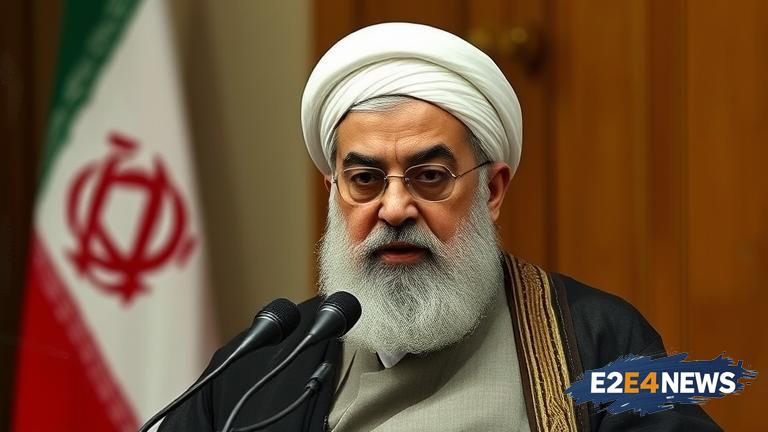In a recent statement, Iranian Supreme Leader Ayatollah Ali Khamenei strongly condemned Israel’s aid to Gaza, labeling it as a ‘cheap form of genocide’. Khamenei accused Israel of attempting to manipulate the international community by providing limited aid to the besieged Gaza Strip, while simultaneously perpetuating violence and oppression against the Palestinian people. The Iranian leader emphasized that Israel’s actions are designed to force Palestinians to die in the rubble of their destroyed homes or get shot while trying to access food and other essential supplies. Khamenei’s comments come amidst escalating tensions between Israel and Palestine, with the Gaza Strip facing a severe humanitarian crisis due to the ongoing blockade and repeated military assaults. The Iranian leader has long been a vocal supporter of the Palestinian cause, and his statements reflect the strong anti-Israel sentiment prevalent in Iran. Khamenei’s criticism of Israel’s aid efforts is likely to resonate with many in the Arab and Muslim world, who view Israel’s actions as a form of collective punishment against the Palestinian people. The Gaza Strip has been under an Israeli blockade since 2007, resulting in widespread poverty, unemployment, and shortages of basic necessities like food, water, and medicine. The repeated military assaults on Gaza have caused significant damage to the territory’s infrastructure, leaving many Palestinians without access to basic services like electricity, sanitation, and healthcare. The international community has repeatedly called for an end to the blockade and a negotiated settlement to the Israeli-Palestinian conflict, but a lasting resolution remains elusive. Khamenei’s statement is likely to be seen as a reflection of Iran’s commitment to supporting the Palestinian cause, and its opposition to Israeli policies in the region. The Iranian leader’s comments may also be intended to rally international support for the Palestinian people, and to highlight the need for a more robust response to Israel’s actions in Gaza. As the situation in Gaza continues to deteriorate, Khamenei’s statement serves as a reminder of the deep-seated tensions and conflicts that underlie the Israeli-Palestinian dispute. The Iranian leader’s criticism of Israel’s aid efforts is likely to be echoed by other critics of Israeli policy, who argue that the country’s actions in Gaza amount to a form of apartheid or collective punishment. The international community must take a more active role in addressing the humanitarian crisis in Gaza, and work towards a negotiated settlement that recognizes the rights and dignity of the Palestinian people. Ultimately, Khamenei’s statement serves as a call to action, highlighting the need for a more just and equitable solution to the Israeli-Palestinian conflict. The situation in Gaza remains a major concern for the international community, and Khamenei’s comments are likely to contribute to the ongoing debate about the best way to address the crisis. As the conflict continues to simmer, it is clear that a lasting resolution will require a fundamental shift in the approach of all parties involved, including Israel, Palestine, and the international community. The Iranian leader’s statement is a reminder that the Israeli-Palestinian conflict is a complex and deeply entrenched issue, requiring a sustained and collective effort to resolve. The need for a negotiated settlement that recognizes the rights and dignity of the Palestinian people is more pressing than ever, and Khamenei’s comments serve as a reminder of the importance of international solidarity and support for the Palestinian cause.
